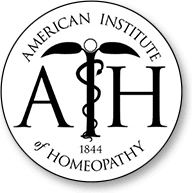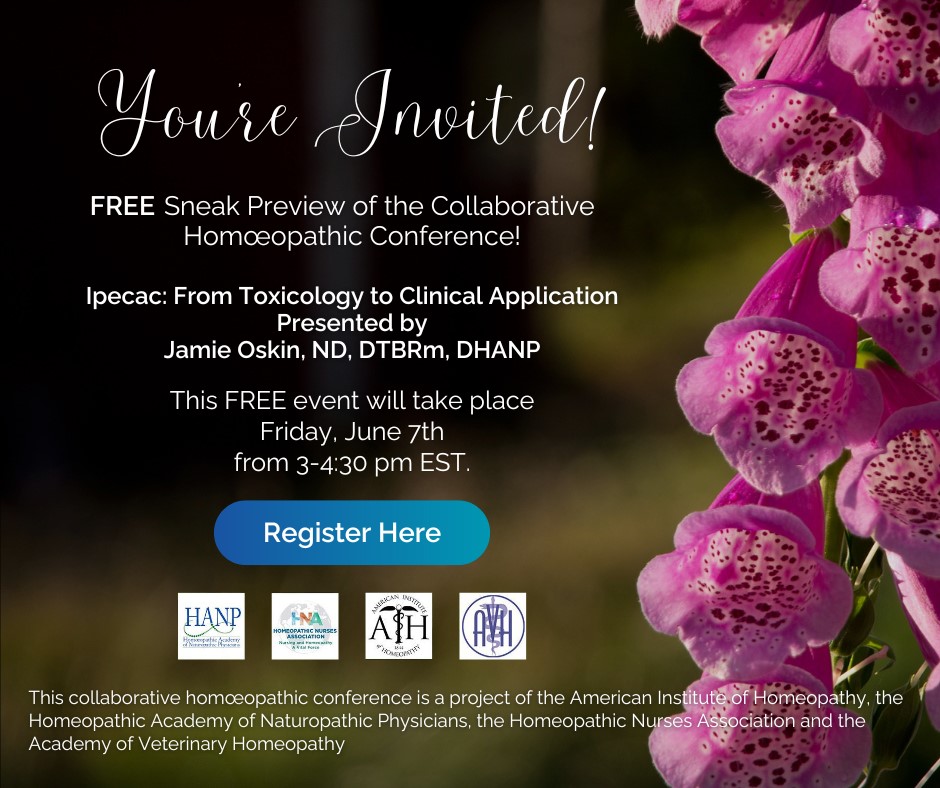About Licensed Homeopathic Physicians and Allied Healthcare Professionals
Licensed physicians have been prescribing homeopathic medicines in the course of their practice of medicine ever since 1810, when the homeopathic phenomenon was first elucidated, made public, and developed as a system of medicine by Dr. Samuel Hahnemann, a celebrated German physician. His three major works are the Organon of Medicine (1810), the Materia Medica Pura (1821), and the Chronic Diseases (1828), all of which were written for physicians in their practice of medicine. Homeopathic physicians are in practice throughout the world and homeopathy is officially recognized as a system of medicine by the national/government health services of the UK, France, Switzerland, and India, among others.
Since 1844, the American Institute of Homeopathy (AIH) has been the voice of the homeopathic medical profession in the United States. Our membership comprises physicians (medical, osteopathic, naturopathic), dentists, veterinarians, nurse practitioners, physician assistants, pharmacologists and pharmacists all of whom have additional training in homeopathic medicine. Licensure is a prerequisite to membership in the American Institute of Homeopathy.
As licensed homeopathic physicians and allied healthcare professionals, we are bound by the law to adhere to the same standards of practice as corresponding mainstream licensed professional providers, though homeopathic therapeutic decisions are made in accordance with the principles of homeopathic medicine. These standards of practice include the following:
- Taking a medical history and completing any necessary physical examination;
- Obtaining appropriate laboratory and diagnostic studies;
- Interpreting diagnostic studies and reviewing medical records;
- Assessing the urgency of the medical condition being treated and referring to appropriate specialists in a timely manner;
- Diagnosing and treating the patient in accordance with the licensure of the practitioner;
- Monitoring the progress of the patient’s condition and modifying the treatment plan as needed;
- Maintaining appropriate medical records;
- Acquiring further training as required to maintain our respective licenses, in the form of continuing medical education courses and seminars;
- Practicing in accordance with a professional code of ethics and confidentiality.
Scope of Practice
We recognize that the Scope of Practice may differ for our different professions. All of our members are committed to practice medicine/dentistry in accordance with the Scope of Practice specified by our respective licenses.
Legal Status of Homeopathic Medicines
Homeopathic medicines are included in the Food, Drug and Cosmetic Act of 1938 (see SEC. 201. (g)(1) of the Act 21 U.S.C. §321), and therefore fall within the regulatory authority of the FDA, which recognizes the
Homeopathic Pharmacopoeia of the United States (HPUS) as their official compendium
. The
HPUS is also recognized in the Controlled Substances Act (21 U.S.C. § 802). Approximately 98% of homeopathic medicines are classified as non-prescription drugs. See
www.hpus.com for further information.
Our members are duly licensed to prescribe medicines contained in the USP and HPUS, in accordance with our respective DEA licenses.
Safety of Homeopathic Medicines
While homeopathic medicines have an outstanding safety profile, absolute safety is not assured. The homeopathic pharmaceutical industry adheres to rigorous standards and monitors the occurrence of adverse events. Their data indicate that, while rates are extremely low, there are rare incidences of Adverse Events and Serious Adverse Events associated with the use of homeopathic medicines.
The Necessity of IRBs for Homeopathic Provings
A homeopathic proving refers to the experimental method by which the effects of homeopathic medicines on human subjects are discovered and documented. As with all research that involves the administration of medicinal substances to human subjects, approval of the research by an Institutional Review Board (IRB) is mandated by federal legislation (see CFR, Title 45, Public Welfare, Department of HHS, Part 46, Protection of Human Subjects, Subpart A, Section 46.101). The AIH endorses only the HPCUS guidelines for Homeopathic Provings, which include a requirement for IRB approval.
Certification and Licensure
We encourage all our members to seek certification. For licensed professionals, certification is a voluntary process that demonstrates to the public a specified level of expertise in one’s profession. In contrast, licensure by the state is a requirement for the right to practice medicine, irrespective of whether or not the practitioner is certified.
There are three certifying bodies for homeopathic practitioners in the United States:
1. Established in 1959, the American Board of Homeotherapeutics (ABHt) grants Board-certification in Classical Homeopathy as a Doctor of Homeotherapeutics (DHt) to licensed medical and osteopathic physicians who have graduated from an accredited medical or osteopathic school.
2. Established in 1988, the Homeopathic Academy of Naturopathic Physicians (HANP) grants certification in Classical Homeopathy as a Diplomate of the HANP (DHANP) to naturopathic physicians who have graduated from an accredited naturopathic school. See www.hanp.net/membership/specialty for all requirements.
3. Established in 1991, the
Council for Homeopathic Certification (CHC) grants certification as a Certified Classical Homeopath (CCH) to practitioners with no requirement for licensure and no requirement for graduation from an accredited health professions school. Although some licensed practitioners choose to obtain certification through the CHC, the majority of CCHs are non-licensed homeopathic practitioners. See
www.homeopathicdirectory.com for all requirements.



